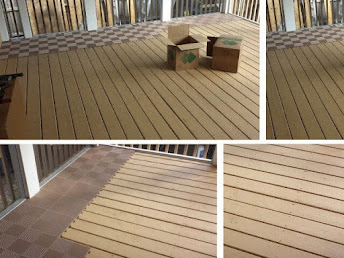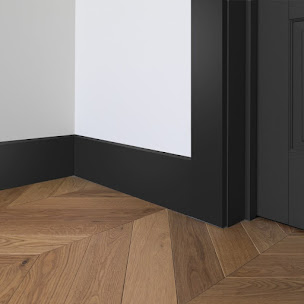The Durability of Interlocking Deck Tiles in Various Climates
Decking tiles are the ideal way to update your deck surface if you want to hide an outdated, unsightly deck or patio. Decking Tiles can be laid on concrete, brick, wood, and, in certain situations, even grass, gravel, or soil.
Although wood is a prevalent decking material and gives a traditional appearance and feel, wood also has special issues and concerns that might need additional work decades after the deck is constructed. Although a deck can be built from a variety of wood species, Ipe decking tiles are frequently utilized because of their toughness, beauty, and the longevity.
The possibilities for interlocking composite, imitation, and real wood tiles are endless, and you may design the room of your desires for a lot less money than you may imagine. The best wooden deck tiles available today are extremely simple to clean and maintain, and they can be placed by anyone in a few hours.
Focus on the Durability of Tiles
The greatest advice for having the ideal patio tiles is to prioritize robustness and longevity. The power of the tile is something that most people overlook, which is a grave error. Outdoor tiles should be more durable and susceptible to long-lasting scratches, nicks, and other kinds of damage than indoor tiles. For this reason, it is imperative that outdoor tiles be robust enough to endure severe weather and the high-traffic areas.
Compared to other wood decking types, such as pressure-treated wood, ipe Interlocking Deck Tiles may endure up to 50 years with less upkeep. To further prolong the lifespan of the deck, if a piece of lumber needs to be changed, the inherent color differences in ipe decking will make the new board less obvious.
Toughness and Climate Obstruction
The wood slats' surface may have a modest concave profile throughout their width in some environmental circumstances. This occurrence usually happens when the top surface of the tiles is exposed to hot sunshine after an amount of rainfall, leaving the underneath of the tiles damp. Since wood is a natural material, this happens when moisture is absorbed by the wood slats on their underside, causing them to expand more than on their top surface, where moisture absorption may be inhibited by the sun's heat or any decking oil that may have been applied. This minor cupping should go away when the surface and underside moisture contents are equal.
Because of their exceptional strength and ability to withstand the elements, Composite Decking Tiles are a practical and long-lasting solution for outdoor applications exposed to a variety of environmental factors and climatic conditions. Built to withstand UV rays, moisture, and the temperature fluctuations, decking tiles maintain their principal credibility and elegant appeal over time, ensuring minimal fading, warping, or weakening even in harsh outdoor environments. By combining durable and weatherproof materials, decking tiles create an outdoor flooring solution that is low-maintenance and long-lasting, allowing users to enjoy their outside areas without constantly needing repairs or replacements.




Comments
Post a Comment